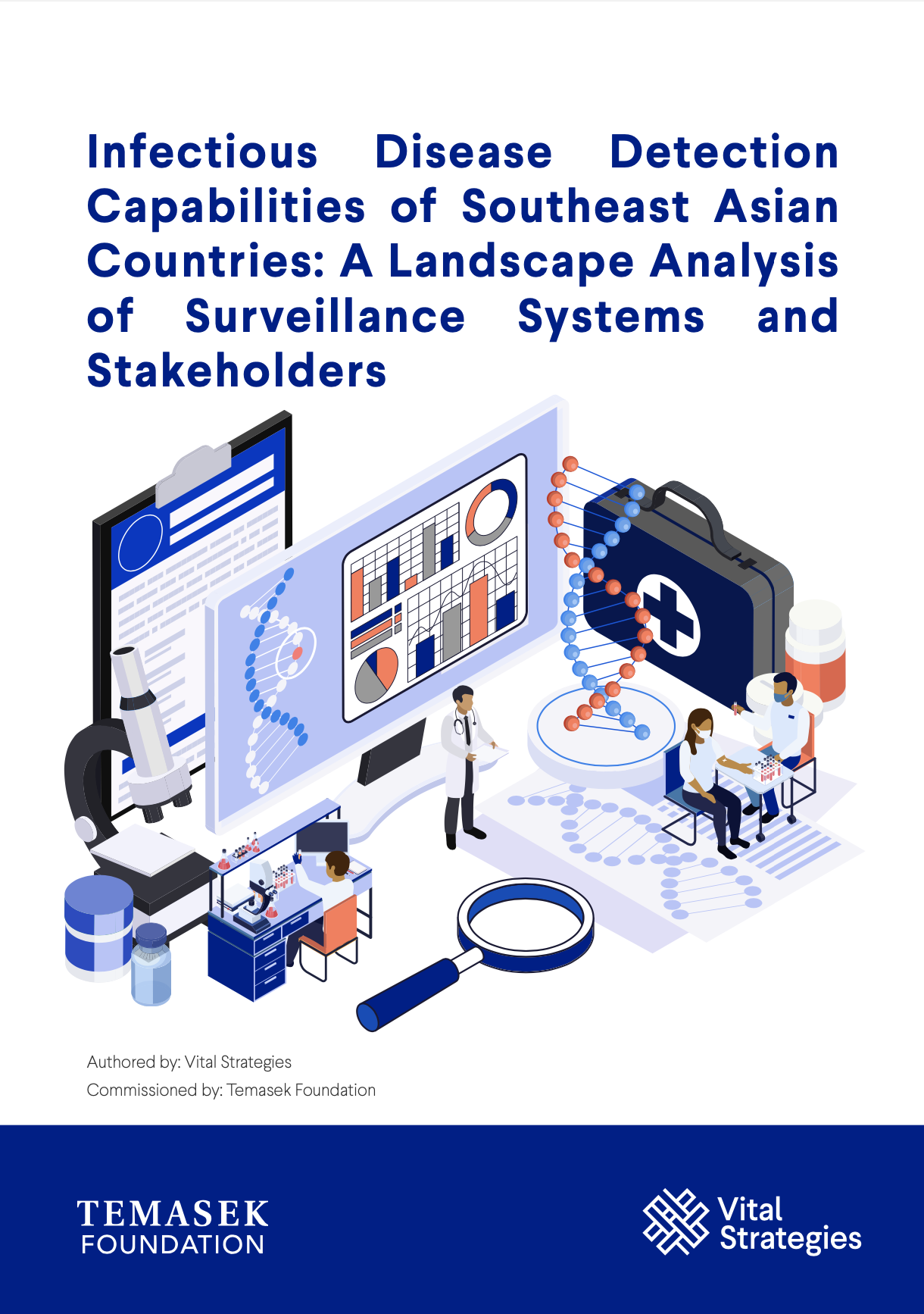Southeast Asia is a hot spot for emerging and reemerging infectious diseases and, in part due to rapid economic growth, increased trade, urbanization, mobile populations, and health impacts of climate change, it is a region that faces high health security risk region.
This report was commissioned by the Temasek Foundation to study the landscape of infectious disease detection capabilities and the stakeholders supporting the development of these capabilities in six Southeast Asian countries: Brunei, Indonesia, Malaysia, Philippines, Thailand, and Vietnam.
The types of detection activities examined in this report include those that support surveillance and early warning systems, laboratory systems, reporting systems, human resources, physical infrastructure, regulatory infrastructure, and supply chains.
Recent Abstracts
Foundations & Futures: Reimagining Public Health in the Artificial Intelligence Era
Strengthening Health Systems to Address Air Pollution in Ethiopia
Policy Brief: Childhood Blood Lead Surveillance in Indonesia – Findings and Policy Recommendations
Impact of Blue Lanes on Road Safety: Crashes, Speed and Motorcyclists’ Perceptions in…
Impacto da Faixa Azul na Segurança Viária: Sinistros, velocidade e percepções de motociclistas…
Culture is Medicine- a Model of Indigenous Harm Reduction in Practice
Trouble Brewing – The Case for Alcohol Policy (Second Edition)
Lessons from Vietnam’s Campaign for a Tax on Sugar-Sweetened Beverages
Principles of Alcohol Taxation
Clean Air in Jakarta: Gaps and Possibilities Toward Low Emission Practices
